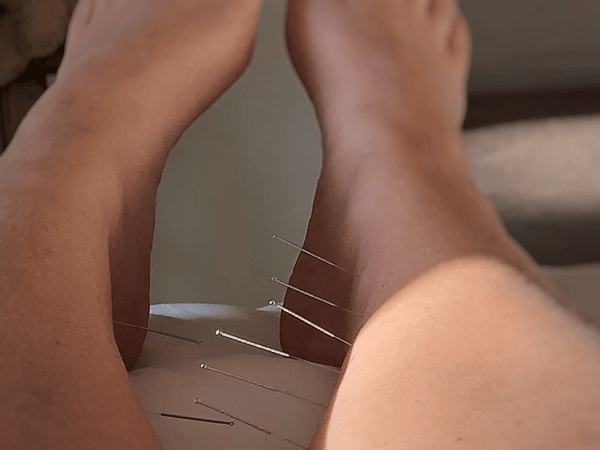Acupuncture is one of the oldest forms of medicine in the world. It has been used for centuries to treat various illnesses and injuries. But does acupuncture work? And is it safe? Well, for many people, the answer is yes. Acupuncture is an effective treatment for a wide variety of conditions. It is also generally safe when performed by a trained and licensed practitioner.
However, like any treatment, it has its positives and negatives. So, to help you better understand, this article will provide you with the truth about acupuncture.
Contents
The History Of Acupuncture

Acupuncture originated in China over 2,000 years ago. The first recorded use of acupuncture was in The Yellow Emperor’s Classic of Internal Medicine, a text that dates back to around 100 BCE. In this text, acupuncture can help treat various conditions, including gastrointestinal disorders, insomnia, and headaches.
Over the centuries, acupuncture has spread from China to other parts of Asia and the world. Today, it is practiced in many countries and is used to treat various conditions. Although there is still some debate about its efficacy, acupuncture is generally safe when performed by a trained professional.
The Truth About Acupuncture And How It Works

Acupuncture is one of the key components of TCM, and it is based on the belief that a life force or energy (known as qi) flows through the body. This qi can become blocked, and when this happens, it can lead to illness. The goal of acupuncture is to unblock the qi and restore balance in the body.
Acupuncture involves the insertion of thin needles into specific points on the body. These points are known as acupuncture points or acupoints. The needles penetrate a depth of millimeters beneath the skin. Once in place, the needles are left in place for minutes or longer. Patients may experience a tingling sensation or a sense of heaviness at the needle site during this time. Some people find acupuncture to be relaxing, while others find it slightly uncomfortable.
A growing body of evidence suggests that acupuncture can be effective for treating pain, fatigue, anxiety, and many other conditions. While more research is needed to confirm these findings, acupuncture remains an essential part of TCM and an increasingly popular choice for natural healing.
The Benefits Of Acupuncture

If you have been thinking about trying acupuncture, you may wonder what the potential benefits are. According to traditional Chinese medicine, acupuncture can help treat a wide range of health conditions. These include:
Stress Relief
While acupuncture often treats physical conditions, it can also be effective for relieving stress and anxiety. In today’s fast-paced world, more and more people are struggling to cope with the demands of daily life. As a result, stress levels are at an all-time high. Acupuncture can help to reduce stress by promoting relaxation and reducing anxiety.
Studies have shown that acupuncture can help to lower cortisol levels, which are associated with stress. In addition, acupuncture can increase serotonin levels, a neurotransmitter that plays a role in regulating mood. By reducing stress and anxiety, acupuncture can help to improve overall health and well-being.
Reduce Joint Pain
One of the most well-known benefits of acupuncture is its ability to reduce joint pain because acupuncture helps release endorphins, natural painkillers produced by the body. In addition, acupuncture can improve circulation and reduce inflammation, which can help reduce joint pain.
Acupuncture can help stimulate the nervous system, which can help to block pain signals from reaching the brain. As a result, acupuncture can effectively treat joint pain caused by arthritis, bursitis, and other conditions.
Relief From Headaches
There are a few different theories about how acupuncture may help relieve headaches. One theory suggests that the needles stimulate the release of endorphins, which are natural pain-relieving chemicals in the brain. Another theory suggests that acupuncture helps regulate serotonin levels, which can impact headaches. Finally, some research suggests that acupuncture may help to reduce inflammation.
While more research is needed to confirm the efficacy of acupuncture for headaches, many people find it a helpful treatment. If you’re interested in trying acupuncture for your headaches, be sure to consult with a licensed acupuncturist.
Improve Digestion
Acupuncture has been used for centuries to promote overall health and well-being. One of the many benefits of acupuncture is improved digestion, which is from stimulating the meridian points associated with the digestive organs. Acupuncture helps improve digestion by promoting the production of digestive enzymes, aiding in the absorption of nutrients, and help reduce inflammation.
In addition, acupuncture can help relieve symptoms of indigestion such as bloating, gas, and nausea. For these reasons, acupuncture is an effective treatment for poor digestion.
Possible Negative Effects Of Acupuncture

Though often assumed to be a completely holistic and natural form of medicine, there are potential negative side effects associated with acupuncture that practitioners and patients should be aware of before undergoing treatment.
Bruising
One of acupuncture’s most common side effects is bruising, which is usually the result of the needles being inserted too deeply into the skin. While acupuncture is generally a safe treatment, deep needle insertion can cause severe bruising and internal bleeding, which can sometimes lead to serious complications such as organ damage or death. For this reason, it is essential to find a qualified practitioner with experience performing this type of treatment.
Additionally, avoiding drinking alcohol or taking blood-thinning medications before acupuncture is essential as this can increase the risk of bruising.
Infection
While acupuncture is generally a safe treatment, there is always a risk of infection when the skin gets pierced. In addition, you use acupuncture needles on areas of the body that are already tender or inflamed, which can increase the risk of infection. The most common infections associated with acupuncture are viral and bacterial skin infections, such as cellulitis and abscesses.
More serious infections, such as septic arthritis or endocarditis, can occur in rare cases. While the risk of infection is relatively low, it’s essential to be aware of the potential risks before undergoing acupuncture treatment.
Muscle Twitching
Muscle twitching is typically not a cause for concern, but in some cases, it can be pretty uncomfortable. It is essential to understand that acupuncture needles are very thin and often do not go deep into the muscle tissue. However, they can sometimes hit a nerve or blood vessel, which can cause the muscle to twitch.
If you experience muscle twitching during or after acupuncture, be sure to let your practitioner know so they can adjust the needle placement as needed. In most cases, muscle twitching is not a severe side effect and will resolve on its own. However, if it is painful or persists for an extended period, it is always best to consult a medical professional.
Insomnia
Another potential side effect is insomnia. Insomnia is a condition that causes difficulty falling asleep or staying asleep. It can be from various factors, including stress, anxiety, and changes in sleep schedule. While acupuncture can help relieve some of these factors, it can also inadvertently cause insomnia because the needles can stimulate the nervous system, making it difficult to relax and fall asleep. If you are considering acupuncture to treat insomnia or another condition, discuss the potential risks and side effects with your practitioner.
Now You Know The Truth About Acupuncture
Acupuncture is a popular and effective treatment for many conditions, but it’s essential to be aware of the potential risks and side effects before undergoing treatment. In most cases, acupuncture is a safe and effective therapy with few side effects. However, as with any medical treatment, there is always a risk of complications. Be sure to find a qualified practitioner and discuss any concerns you may have before starting treatment.


